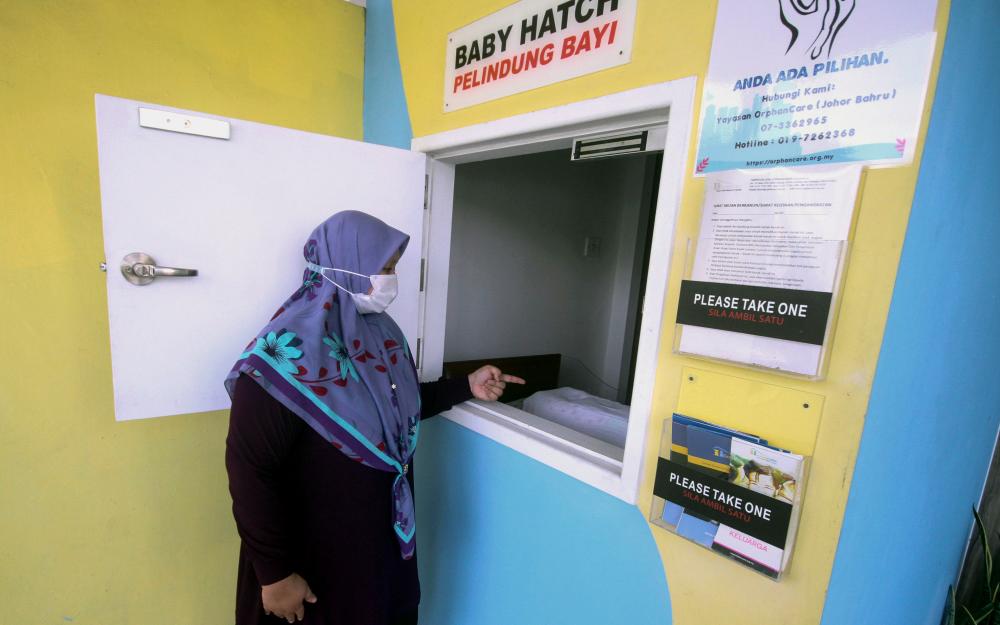PETALING JAYA: Mothers who do not have the resources to raise a child have an option – place their newborn in a baby hatch.
It saves the life of the child, relieves the mother of the challenge of parenthood and it is legal, even if it is done anonymously.
Despite the fact that there is a safe way out, mothers continue to leave their babies to chance. Police records show that an average of 100 babies are dumped each year, and 60% of them do not survive long enough to be saved.
This is a situation that OrphanCare Foundation, which works to give unplanned newborns the opportunity to grow up in the care of a family, seeks to change.
The foundation is aware that it has to first deal with the impression that baby hatches encourage baby dumping.
OrphanCare advocacy and communications manager Riza Alwi pointed out that dumping babies in random places is a criminal offence whereas putting the infant in a baby hatch will save his life. “The mother does not even have to give her name,” she told theSun.
She said once a baby comes into the care of OrphanCare, steps are taken to look for a suitable family to foster the child. “More often than not, abandoned babies who are saved end up in orphanages, and this may have a negative impact on the child. We hope to prevent that from happening by getting the child adopted by a loving family,” she said.
Citing statistics compiled by the organisation, Riza said 37 babies were save in 2019 and another 45 in 2020. “We would also like to remind mothers and the public that placing a baby at OrphanCare does not mean she is abandoning the child. To us, it is an act to save the baby,” she said.
Riza said fear and stigma are the main factors that lead to baby dumping in Malaysia. “A woman pregnant out of wedlock may have a difficult time facing her family, and an unwanted pregnancy causes trauma.”
Riza said many women also fail to realise they are carrying a child until late in the pregnancy. “Denial and lack of reproductive health knowledge are also factors that lead to them abandoning their babies,” she said.
She said most of the young women who seek help from OrphanCare are university students. “They may be academically educated, but they lack social and sexual awareness,” she explained.
Riza said OrphanCare has so far received 448 babies who otherwise would have been abandoned at random places.
“We want to raise awareness that not only women with unwanted pregnancies but anyone who comes across an abandoned baby may come to us for help. We will provide every assistance, including help to deal with the police,” she said.
She also gave an assurance that babies sent to OrphanCare would not end up in an orphanage. “There is a list of loving families hoping to adopt a child,” she said.
Riza said OrphanCare works closely with the Social Welfare Department in the adoption process, including on legal matters.
“Our mission is to ensure that as few babies as possible end up in institutions,” she said.
Apart from creating awareness of its services, OrphanCare also has a sexual and health awareness programme to educate young people about self-awareness to empower them to act wisely.
“Understanding how their body and emotions change as they mature helps them cope better with relationship issues. We get them to speak up about sexual harassment and rape, and to better articulate their feelings to friends, family and significant ones. Ultimately, we hope they can help others too.”
OrphanCare has one baby hatch in each of its offices in Petaling Jaya, Sungai Petani and Johor Baru. It also has baby hatches at seven hospitals through a collaboration with the KPJ Healthcare Bhd.














